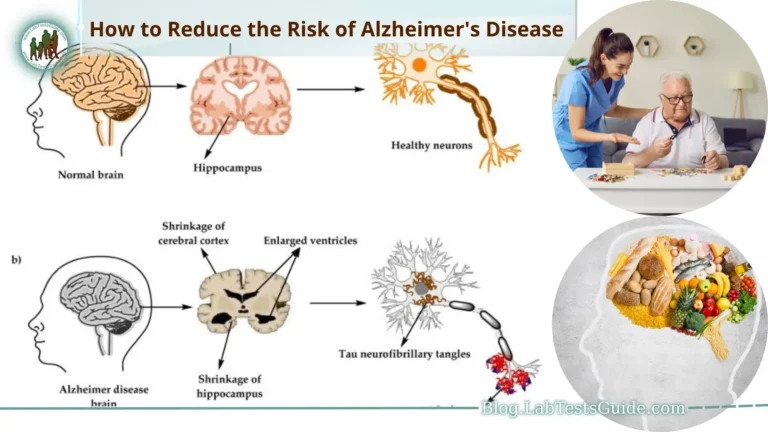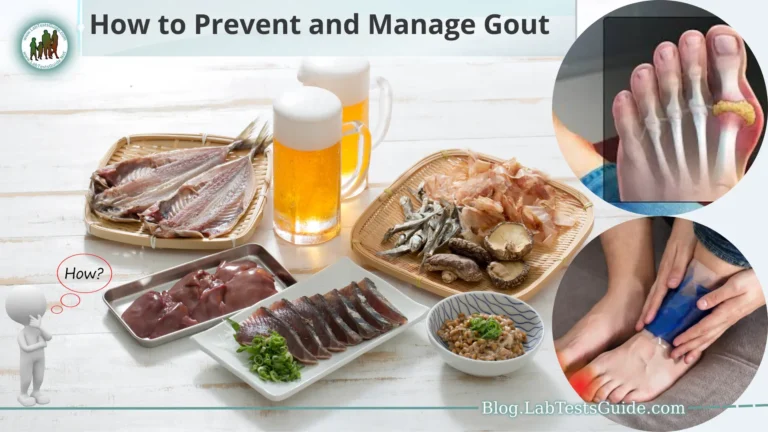The stage for the discussion by highlighting the contrast between fad diets and sustainable weight loss strategies. In a world inundated with quick-fix solutions, it becomes crucial to distinguish between fleeting trends and approaches that foster lasting well-being. This document delves into the characteristics of fad diets, underscores the principles of sustainable weight loss, and underscores the significance of informed choices for achieving and maintaining a healthy weight in the long run.

What Is a Fad Diet?
- Temporary Approach: Fad diets are characterized by their short-lived nature. They surge in popularity due to media attention, celebrity endorsements, or viral trends, but they lack the sustainability required for long-term success.
- Extreme Restrictions: Fad diets impose rigid and often extreme rules regarding food choices. These restrictions may involve cutting out entire food groups, severely limiting calorie intake, or focusing on consuming only one type of food.
- Rapid Weight Loss Promise: The primary allure of fad diets is their promise of rapid and significant weight loss within a short time frame. This appeal is particularly strong for individuals seeking quick solutions to their weight-related concerns.
- Lack of Scientific Basis: Many fad diets lack scientific credibility and are not supported by well-designed research studies. Claims made by these diets may be based on anecdotes, personal testimonials, or cherry-picked data.
- Yo-Yo Effect: Fad diets often lead to a cycle of weight loss and weight regain. The initial weight loss is often unsustainable, and once the diet is abandoned, individuals tend to regain the lost weight and sometimes even more.
- Neglecting Balanced Nutrition: Fad diets often prioritize a single aspect of nutrition (e.g., low carbs, high protein) while neglecting the importance of a balanced diet. This can lead to nutrient deficiencies and health problems over time.
- Potential Health Risks: Extreme dietary restrictions and imbalances can pose serious health risks. Nutritional deficiencies, electrolyte imbalances, weakened immune systems, and metabolic issues are some of the potential consequences of following fad diets.
- Emotional Impact: Fad diets can contribute to a negative relationship with food and body image. The cycle of restriction and indulgence can lead to guilt, shame, and a distorted view of eating.
- Lack of Individualization: Fad diets often adopt a one-size-fits-all approach, disregarding the fact that each person’s body, metabolism, and nutritional needs are unique.
- Short-Term Focus: Fad diets prioritize short-term results over long-term well-being. This can lead to a cycle of repeatedly trying different diets without achieving sustainable health improvements.
How to Implement Sustainable Weight Loss Strategies:
- Set Realistic Goals: Define achievable and realistic weight loss goals that are based on your individual needs and circumstances. Aim for steady progress rather than quick fixes.
- Focus on Balanced Nutrition: Prioritize whole, nutrient-dense foods that provide essential vitamins, minerals, and macronutrients. Create a well-rounded diet that includes a variety of foods from all food groups.
- Practice Portion Control: Learn to listen to your body’s hunger and fullness cues. Portion control helps you avoid overeating and promotes mindful eating.
- Regular Physical Activity: Incorporate regular exercise into your routine. Aim for a combination of cardiovascular exercises, strength training, and flexibility exercises for overall fitness.
- Lifestyle Changes: Instead of adopting temporary changes, focus on sustainable lifestyle adjustments. This might include incorporating more physical activity into your daily life and finding enjoyable ways to stay active.
- Mindful Eating: Pay attention to what you eat, how you eat, and why you eat. Mindful eating encourages you to savor each bite and develop a healthier relationship with food.
- Stay Hydrated: Drink plenty of water throughout the day. Hydration is important for overall health and can also help manage hunger and cravings.
- Sleep Well: Prioritize quality sleep as it plays a significant role in weight management and overall well-being.
- Manage Stress: Find effective stress management techniques such as meditation, yoga, deep breathing, or hobbies that help reduce emotional eating.
- Behavioral Changes: Identify and address habits that contribute to overeating or unhealthy choices. Focus on gradual changes to build sustainable habits over time.
- Support System: Surround yourself with a supportive network of friends, family, or even professionals like dietitians or trainers who can provide guidance and encouragement.
- Track Progress: Keep a record of your eating habits, exercise routine, and progress. Tracking can help you stay accountable and make adjustments as needed.
- Seek Professional Guidance: Consult a registered dietitian or healthcare provider to create a personalized plan that aligns with your nutritional needs and health goals.
- Long-Term Mindset: Shift your focus from short-term weight loss to long-term health and well-being. Sustainable weight loss is a journey that requires patience and commitment.
- Celebrate Non-Scale Victories: Acknowledge and celebrate achievements beyond just the numbers on the scale, such as increased energy levels, improved fitness, or healthier eating habits.
Factors Influencing Fad Diet Popularity:
- Media Exposure: Extensive coverage in magazines, TV shows, social media, and online platforms can amplify the popularity of fad diets, making them appear more legitimate and effective.
- Celebrity Endorsements: When well-known figures endorse a particular fad diet, it can create a perception of credibility and attract a large following.
- Quick-Fix Mentality: The desire for rapid results drives individuals to seek shortcuts, making fad diets appealing due to their promise of swift weight loss.
- Societal Pressures: Societal emphasis on thinness and body image ideals can lead to a heightened demand for instant weight loss solutions, contributing to the popularity of fad diets.
- Misinterpretation of Research: Misinterpretation or oversimplification of scientific studies can lead to the misunderstanding that certain diets are effective and safe, even when evidence is limited or inconclusive.
- Peer Influence: Recommendations from friends, family, or colleagues who have experienced short-term success with a fad diet can influence others to try it as well.
- Fear of Missing Out (FOMO): The fear of missing out on a potential solution can drive people to jump on the bandwagon of trending diets without thoroughly evaluating their sustainability or scientific basis.
- Marketing Strategies: Clever marketing techniques can create a sense of urgency or exclusivity, making people feel like they need to try a fad diet to be part of a select group.
- Cultural Trends: Cultural trends and societal shifts toward wellness and health-consciousness can make individuals more susceptible to trying new diets, even if they lack evidence.
- Lack of Education: Limited nutritional education and awareness can make individuals susceptible to believing in the exaggerated claims of fad diets.
- Desperation: Individuals who have struggled with weight loss for a long time might be more willing to try extreme measures, including fad diets, out of desperation.
- Availability of Information: The abundance of information on the internet makes it easier for fad diets to gain traction quickly and for individuals to access seemingly valid information without thorough scrutiny.
- Cultural Beliefs: Cultural beliefs and traditions related to food and body image can influence people’s perceptions of what constitutes an effective diet.
- Psychological Factors: Emotional factors such as stress, low self-esteem, and the desire for quick fixes can make individuals susceptible to the allure of fad diets.
- Influence of Peer Groups: Social circles or online communities that promote specific fad diets can foster a sense of belonging, encouraging individuals to adopt these diets.
Shortcomings of Fad Diets:
- Lack of Long-Term Sustainability: Fad diets are typically difficult to maintain over the long term due to their extreme restrictions and unrealistic rules.
- Nutritional Deficiencies: Eliminating entire food groups or severely restricting calories can lead to nutrient deficiencies, negatively impacting overall health.
- Temporary Weight Loss: While fad diets might offer quick initial weight loss, this often proves to be short-lived, with weight regain once the diet is abandoned.
- Metabolic Impact: Extreme caloric restriction in fad diets can slow down metabolism, making it harder to lose weight and easier to gain it back.
- Muscle Loss: Rapid weight loss in fad diets can result in muscle loss, weakening the body and potentially leading to a less toned appearance.
- Emphasis on Quick Fixes: Fad diets promote the idea of rapid results, contributing to a cycle of yo-yo dieting rather than fostering sustainable habits.
- Mental Health Impact: The restrictive nature of fad diets can trigger feelings of deprivation, guilt, and anxiety around food, negatively affecting mental well-being.
- Unbalanced Nutrient Intake: Focusing on one nutrient or food group can lead to imbalances in macronutrients, potentially causing health problems.
- Loss of Muscle Mass: Fad diets can cause loss of lean muscle mass, which is essential for a healthy metabolism and overall strength.
- Inadequate Energy Levels: Drastic calorie reduction can lead to low energy levels, fatigue, and decreased physical performance.
- Unsustainability for Social Life: Strict dietary rules of fad diets can make it challenging to socialize or eat out, impacting one’s quality of life.
- Potential Health Risks: Extreme diets can lead to serious health risks like electrolyte imbalances, heart palpitations, and hormonal disruptions.
- Weight Cycling: Frequent weight loss and gain cycles from following fad diets can harm cardiovascular health and metabolic function.
- Focus on Appearance Over Health: Fad diets often prioritize weight loss and appearance over overall health and well-being.
- Lack of Individualization: Fad diets ignore the fact that each person’s body and nutritional needs are unique, resulting in one-size-fits-all solutions that may not work for everyone.
Benefits of Sustainable Weight Loss Strategies:
- Long-Term Success: Sustainable approaches prioritize gradual and steady progress, leading to lasting weight loss results that are more likely to be maintained.
- Improved Overall Health: Balanced nutrition and lifestyle changes associated with sustainable strategies contribute to better overall health markers, including blood pressure, cholesterol levels, and blood sugar.
- Enhanced Energy Levels: A balanced diet and regular exercise can lead to increased energy levels, improved mood, and better physical and mental performance.
- Preservation of Muscle Mass: Sustainable weight loss strategies focus on gradual weight loss, which helps preserve lean muscle mass and supports a healthy metabolism.
- Better Nutritional Intake: Emphasizing a variety of nutrient-dense foods ensures that the body receives essential vitamins, minerals, and nutrients for optimal functioning.
- Positive Body Image: Sustainable approaches promote a healthy relationship with food and body, reducing the risk of developing negative body image or disordered eating habits.
- Balanced Hormones: Nourishing the body with the right nutrients and avoiding extreme dietary restrictions can help regulate hormones and support overall hormonal balance.
- Reduced Risk of Chronic Diseases: Sustainable weight loss is associated with a lower risk of chronic diseases such as heart disease, diabetes, and certain types of cancer.
- Increased Self-Esteem: Achieving gradual and lasting weight loss through sustainable strategies can boost self-esteem and confidence.
- Behavioral Changes: Sustainable approaches encourage the development of healthy habits, setting the foundation for continued well-being.
- Positive Impact on Mental Health: Balanced nutrition and regular exercise are linked to improved mental health outcomes, including reduced stress and anxiety.
- Adaptability to Lifestyle: Sustainable strategies can be adjusted to fit various lifestyles, making them more practical and achievable over the long term.
- Education and Empowerment: Sustainable approaches promote understanding of nutrition and empower individuals to make informed food choices.
- Gradual Adaptation: Slowly incorporating changes allows the body and mind to adapt, reducing the risk of negative physical or psychological side effects.
- Sustainable for the Long Run: By focusing on lifestyle changes rather than quick fixes, sustainable weight loss strategies can be maintained for years, supporting lifelong health and well-being.
Evidence-Based Approaches to Weight Management:
- Individualization: Tailoring weight management plans to individual needs, taking into account factors such as age, gender, metabolism, medical history, and dietary preferences.
- Balanced Nutrition: Emphasizing a balanced diet that includes a variety of nutrient-dense foods from all food groups to ensure adequate intake of essential nutrients.
- Caloric Deficit: Creating a moderate caloric deficit through a combination of reduced calorie intake and increased physical activity, while avoiding extreme calorie restrictions.
- Portion Control: Practicing portion control to manage calorie intake and prevent overeating, even when consuming healthy foods.
- Behavior Modification: Focusing on behavior change techniques to address emotional eating, stress-related eating, and other unhealthy eating habits.
- Regular Physical Activity: Incorporating regular exercise into daily routines, including both cardiovascular workouts and strength training to support weight loss and overall fitness.
- Mindful Eating: Encouraging mindfulness while eating to enhance awareness of hunger, fullness, and food choices, which can lead to better portion control and reduced overeating.
- Gradual Changes: Implementing gradual, sustainable changes over time rather than drastic modifications that may be difficult to maintain.
- Monitoring and Tracking: Keeping a food diary or using apps to track meals, exercise, and progress, which can help with accountability and awareness.
- Support System: Engaging with a supportive community, friends, or professionals, such as dietitians or support groups, for guidance, motivation, and accountability.
- Quality Sleep: Prioritizing sufficient sleep, as poor sleep patterns can negatively impact metabolism, appetite regulation, and overall weight management.
- Stress Management: Incorporating stress reduction techniques like meditation, yoga, or deep breathing to prevent stress-related weight gain.
- Hydration: Ensuring adequate hydration, as drinking water can help manage appetite and support overall bodily functions.
- Educational Resources: Relying on evidence-based resources such as reputable health websites, research studies, and guidance from registered dietitians or healthcare professionals.
- Long-Term Mindset: Shifting the focus from short-term weight loss goals to long-term health and well-being, emphasizing sustainable habits and gradual progress.
Educating for Lasting Change:
- Nutritional Literacy: Providing individuals with accurate information about macronutrients, micronutrients, and the role of various foods in a balanced diet.
- Understanding Labels: Teaching how to read and interpret food labels to make informed choices when purchasing packaged foods.
- Portion Awareness: Educating about appropriate portion sizes to prevent overeating and promote mindful consumption.
- Cooking Skills: Offering cooking classes or resources to develop basic cooking skills, empowering individuals to prepare nutritious meals at home.
- Meal Planning: Teaching the importance of meal planning to facilitate healthier choices and avoid impulsive, less nutritious options.
- Distinguishing Hunger and Cravings: Helping individuals differentiate between physical hunger and emotional cravings to make conscious eating decisions.
- Recognizing Nutrient-Dense Foods: Guiding individuals to identify and choose foods that offer high nutritional value and support overall health.
- Behavioral Strategies: Providing techniques to manage emotional eating, stress-induced eating, and triggers that lead to unhealthy choices.
- Mindful Eating Practices: Introducing mindfulness techniques that encourage being fully present while eating, fostering a healthier relationship with food.
- Long-Term Goal Setting: Assisting individuals in setting achievable long-term health goals rather than focusing solely on short-term weight loss.
- Self-Monitoring: Encouraging the practice of self-monitoring, such as keeping food diaries or using apps to track eating habits and progress.
- Coping Mechanisms: Teaching alternative coping strategies to manage stress or emotions without resorting to food.
- Sustainable Lifestyle Habits: Promoting gradual lifestyle changes that are realistic and can be maintained over the long term.
- Body Positivity: Encouraging body positivity and self-acceptance, emphasizing health and well-being over unrealistic body ideals.
- Continuous Learning: Emphasizing that education is an ongoing process, encouraging individuals to stay updated on nutrition and wellness research.
Psychological Aspects of Weight Loss:
- Body Image: Addressing body image concerns and fostering a positive self-perception to support a healthy relationship with one’s body during the weight loss journey.
- Self-Efficacy: Enhancing individuals’ belief in their ability to make and sustain behavior changes required for weight loss.
- Motivation: Exploring intrinsic and extrinsic factors that motivate individuals to lose weight, helping them stay committed to their goals.
- Goal Setting: Setting realistic and achievable weight loss goals while focusing on non-scale victories to maintain motivation and positivity.
- Emotional Eating: Recognizing triggers for emotional eating and developing alternative coping strategies to manage emotions without turning to food.
- Mindful Eating: Teaching mindfulness techniques to encourage conscious eating, helping individuals listen to their body’s hunger and fullness cues.
- Self-Compassion: Cultivating self-compassion and kindness towards oneself, reducing feelings of guilt or shame associated with weight loss challenges.
- Addressing Plateaus: Preparing individuals for weight loss plateaus and helping them stay motivated during periods of slower progress.
- Building Resilience: Developing strategies to bounce back from setbacks and challenges, preventing discouragement in the face of obstacles.
- Positive Reinforcement: Acknowledging and celebrating achievements, both small and large, to boost self-esteem and maintain motivation.
- Support System: Recognizing the importance of social support from friends, family, or support groups in maintaining mental well-being during weight loss.
- Stress Management: Teaching stress-reduction techniques, such as meditation, deep breathing, or physical activity, to prevent stress-related overeating.
- Avoiding Comparison: Encouraging individuals to focus on their own progress rather than comparing themselves to others, reducing negative self-perceptions.
- Addressing Negative Self-Talk: Challenging and reframing negative self-talk and self-limiting beliefs that hinder progress.
- Long-Term Mindset: Shifting focus from short-term results to long-term health and well-being, promoting a sustainable and positive attitude towards weight loss.
FAQs:
What is a fad diet?
A fad diet is a short-term, restrictive eating plan that promises quick weight loss through extreme rules and restrictions. These diets often lack scientific evidence and may lead to temporary results.
Why are fad diets popular?
Fad diets gain popularity due to media exposure, celebrity endorsements, and the appeal of rapid weight loss. Societal pressures for quick fixes and the desire to fit cultural beauty ideals also contribute to their popularity.
Are fad diets effective for long-term weight loss?
Fad diets tend to offer short-term results, but they often lead to weight regain once the diet is stopped. Their extreme restrictions and lack of sustainability make them ineffective for lasting weight management.
What is a sustainable weight loss strategy?
Sustainable weight loss strategies involve making gradual, balanced changes to one’s diet and lifestyle. These approaches prioritize realistic goals, balanced nutrition, regular exercise, and long-term behavioral changes.
How can I spot a fad diet?
Fad diets often make exaggerated claims of rapid weight loss, require drastic changes, eliminate entire food groups, and lack scientific evidence. They might promote specific “magic” foods or supplements.
What are the health risks of following a fad diet?
Fad diets can lead to nutritional deficiencies, loss of muscle mass, metabolic slowdown, emotional distress, and potential health risks like heart palpitations and electrolyte imbalances.
What are the benefits of sustainable weight loss strategies?
Sustainable strategies lead to long-term success, improved overall health, better nutritional intake, preservation of muscle mass, positive body image, and reduced risk of chronic diseases.
How can I achieve sustainable weight loss?
Achieve sustainable weight loss by setting realistic goals, focusing on balanced nutrition, practicing portion control, staying physically active, and adopting long-term behavior changes.
Can sustainable weight loss improve mental health?
Yes, sustainable weight loss can positively impact mental health. Balanced nutrition and regular exercise have been linked to improved mood, reduced stress, and enhanced overall well-being.
How important is psychological well-being during weight loss?
Psychological well-being is crucial during weight loss. Addressing body image concerns, emotional eating, and cultivating a positive mindset are essential for successful and sustainable outcomes.
Conclusion:
In conclusion, the contrast between fad diets and sustainable weight loss strategies underscores the significance of informed decision-making for achieving and maintaining a healthy weight over the long term. Fad diets, with their allure of rapid results and extreme restrictions, often yield short-lived outcomes and potential health risks. On the other hand, embracing sustainable approaches that prioritize balanced nutrition, gradual progress, mindful eating, and positive psychological well-being can lead to lasting success, improved overall health, and a more harmonious relationship with food and one’s body. By understanding the pitfalls of fad diets and embracing evidence-based, holistic methods, individuals can embark on a journey towards sustainable weight management and well-being.






